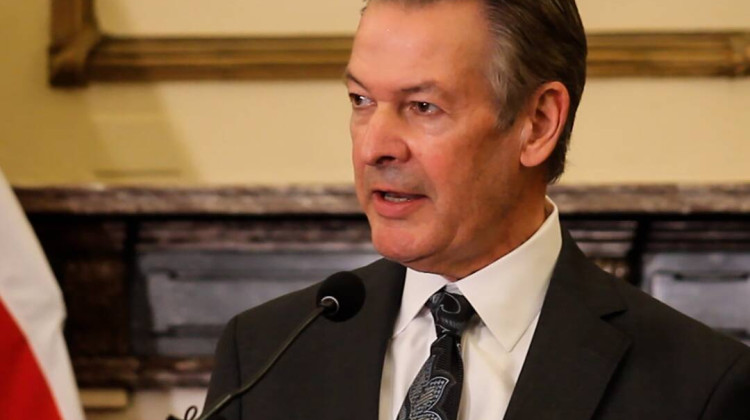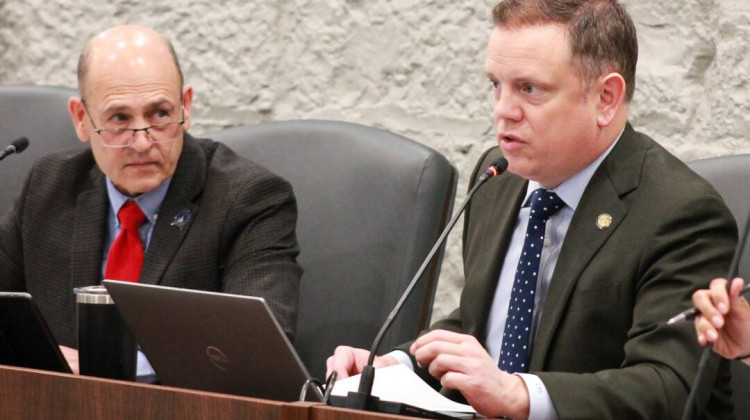
Indiana Chief Justice Loretta Rush speaks during a Supreme Court hearing on a lawsuit challenging the state's near-total abortion ban, Thursday, Jan. 19, 2023, in Indianapolis.
Darron Cummings/APThe future of abortion rights in Indiana is now in the hands of the state’s five Supreme Court justices.
The court heard arguments Thursday in a lawsuit challenging Indiana’s near-total abortion ban.
Abortion care providers, including Planned Parenthood, Whole Woman's Health, All-Options, Inc. and Women's Med Group, want the court to find that the Indiana Constitution’s right to liberty includes a right to abortion.
ACLU of Indiana Legal Director Ken Falk represents the providers.
"Within each constitutional provision, there are essential values, core values," Falk said. "We retain a right of liberty."
Some of the justices – including the newest, Derek Molter – pushed back, wondering if such a ruling would be too broad.
“Is there a point in the pregnancy, for example, where the General Assembly is allowed by our constitution to take away the right to terminate a pregnancy, if it’s not necessary to protect the life or health of the woman?” Molter said.
Justice Geoffrey Slaughter seemed equally skeptical.
"Does it mean the right, for example, to use illicit drugs because it's my body and I have self-determination?" Slaughter said. "Does it include the right to physician-assisted suicide? What other rights fall within the broad right that you're asking us to embrace?"
Falk argued Indiana’s previous law – banning abortion after 20 weeks of pregnancy – would be acceptable.
Solicitor General Thomas Fisher represents the state, seeking to uphold the abortion ban. He said abortion care providers "seek to strip the right to protect the unborn."
"They urge the court to recognize a novel, unwritten, historically counter-indicated right to abortion," Fisher said.
Chief Justice Loretta Rush seemed to rebut Fisher's notion about historical access to abortion.
"So, if you're saying that we're to look at what the framers talked about, the laws at the time – when I reviewed every single law in Indiana that ever dealt with abortion, every single one protected the right of the mother, with regard to making a medical decision to save her life," Rush said.
READ MORE: Why weren’t abortion restrictions decided by a ballot question in Indiana?
Join the conversation and sign up for the Indiana Two-Way. Text "Indiana" to 73224. Your comments and questions in response to our weekly text help us find the answers you need on statewide issues.
Indiana's near-total ban does allow abortion when a pregnant person's life or serious health is at risk. Abortion providers argue the law is purposefully written to be confusing for physicians and still endangers patients' lives.
Justice Christopher Goff focused on a different part of the ban that forces abortion clinics to shut down entirely – not even allowed to perform abortions that would remain legal.
“If someone of limited means wanted to go and have access to a procedure to save her life and she couldn’t, isn’t that problematic?” Goff said.
The court gave no timetable for its ruling.
Contact reporter Brandon at bsmith@ipbs.org or follow him on Twitter at @brandonjsmith5.
9(MDAyMzk1MzA4MDE2MjY3OTY1MjM5ZDJjYQ000))
 DONATE
DONATE








 Support WFYI. We can't do it without you.
Support WFYI. We can't do it without you.